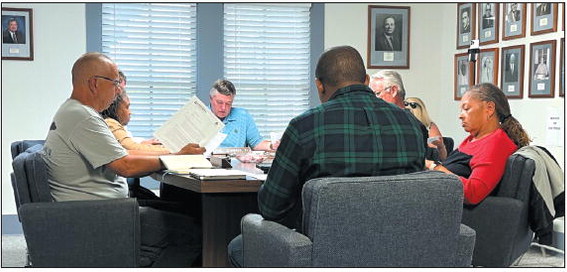UGA Poll Shows Trump Impact
ATLANTA – Donald Trump's endorsement doesn't seem to mean much in Georgia's Republican primary race for governor.
But the former president's blessing apparently makes a big difference further down the GOP primary ballot.
Those are the findings of an unusual poll conducted March 20 through April 8 by the University of Georgia's School of Public and International Affairs Survey Research Center.
Some of the 736 likely Republican primary voters interviewed by phone simply were asked which candidate they preferred for various races, while others were informed which candidate in each contest have been endorsed by Trump.
In the gubernatorial race, GOP Gov. Brian Kemp led former U.S. Sen. David Perdue 47.9% to 37.2% among voters who weren't told that Trump had endorsed Perdue. When given that information, voters still preferred Kemp but by the slightly narrower margin of 46.2% to 39.2%. Trump's support made a much larger difference in the U.S. Senate Republican primary. Trump endorsee Herschel Walker held a huge lead in both polls, but he drew the support of 76% of voters who were told he had Trump's backing. Walker's support among voters who weren't told of the endorsement fell to 64.3%, still well ahead of several opponents. It was in the down-ballot races where Trump's endorsement made the most difference. State Sen. Burt Jones, R-Jackson, who is running for lieutenant governor with Trump's endorsement against Senate President Pro Tempore Butch Miller, R-Gainesville, saw his support in the poll soar from 29.7% to 58.9% among voters told Trump was backing his candidacy. Miller's support dropped slightly from 10.6% to 8.2% when voters were told he was not Trump's pick. The large contingent of undecided voters in the lieutenant governor's race – 54.2% – fell significantly to 29.8% among voters who were told Trump was backing Jones.
Incumbent Lt. Gov. Geoff continued from page
Duncan, who refused to go along with Trump's attempts to overturn the presidential election results in Georgia in 2020, decided not to seek reelection.
U.S. Rep. Jody Hice, RGreensboro, who Trump is backing for secretary of state against incumbent Brad Raffensperger, doubled his support in the poll – from 30.3% to 60.3% – when voters were told of the former president's endorsement.
Conversely, support for Raffensperger dropped from 22.7% among voters who weren't told of the endorsement, to 16.3%.
It was Raffensperger who stood up to Trump when the then-president called in January of last year asking him to 'find' the 11,780 votes Trump would need to overturn Democrat Joe Biden's victory in Georgia.
Trump's endorsement even carried weight in a race that doesn't directly involve anyone who has riled the former president. Little-known Patrick Witt, who is challenging incumbent Insurance Commissioner John King, saw his support skyrocket from just 8.3% when voters weren't told Trump had endorsed Witt, to 51.8% among voters who were made aware of the endorsement.
King's support slipped by a much smaller margin, from 10.6% to 7.2%. A third candidate in the race, Ben Cowart, also dropped from 9.6% to 4.5% when voters were told Trump had endorsed Witt.
UGA political science professor M.V. Hood III wrote in an analysis of the poll that Trump's endorsement made less difference at the top of the ballot because most voters had made up their minds in the high-profile gubernatorial primary.
While Trump's endorsement of Walker moved more voters to support him, it made little difference because the UGA football icon already had a huge lead in the Senate race, Hood wrote.
However, the huge swing of support toward Trump-endorsed candidates further down the ballot could have an impact, Hood wrote.
'In the absence of other information, many may rely on Trump’s endorsement in determining their votes in these races,' he wrote. 'Of course, it should be noted that they will need to seek out this information ahead of time as Trump’s endorsement will not appear on the Republican primary ballot.'
The poll's overall margin of error was plus-orminus 3.6%.







